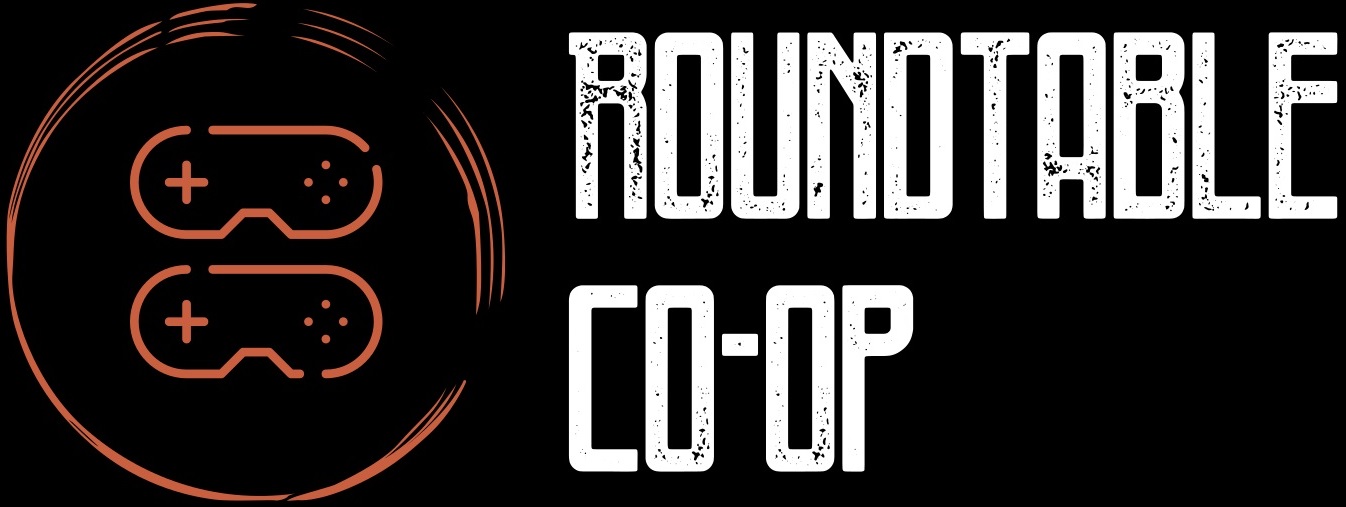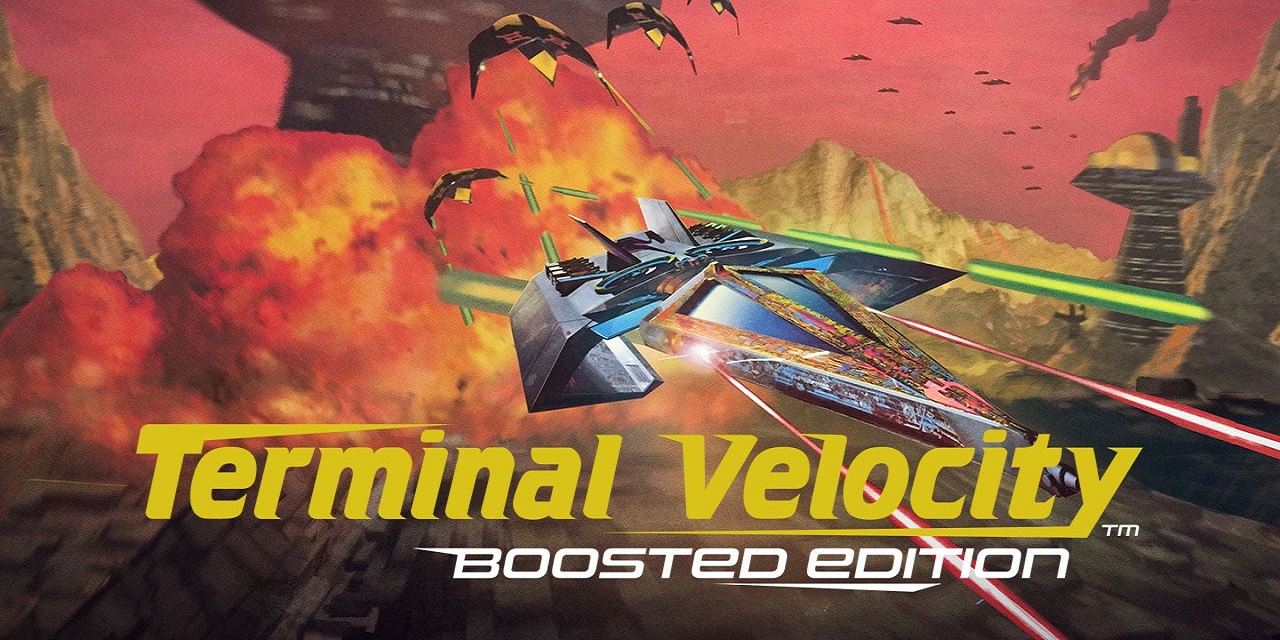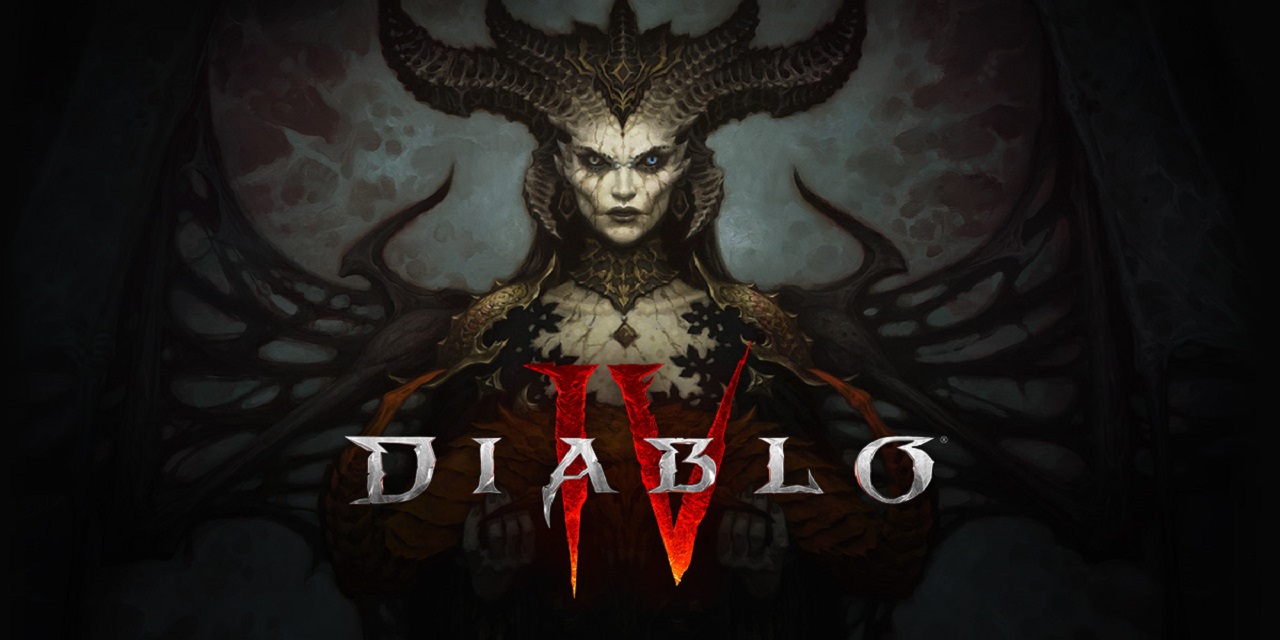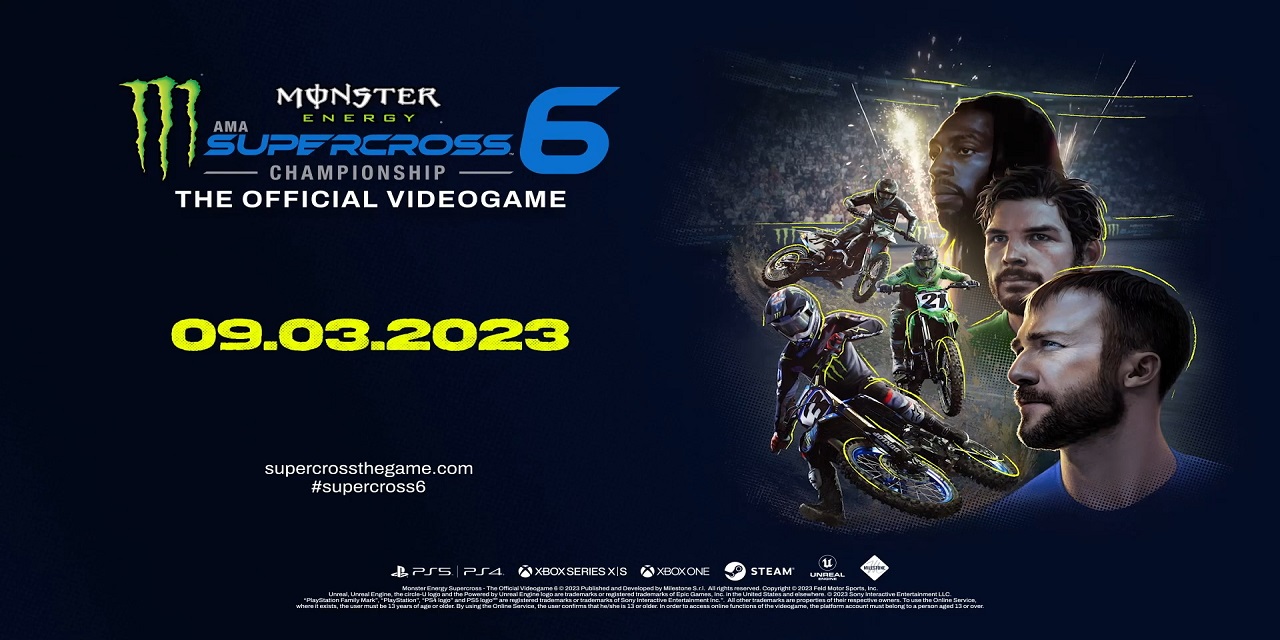Sunday Gold is an interesting blend of point-and-click and turn-based combat adventure game developed by BKOM Studios and published by Team17. The game released on Steam on October 14, 2022, and is set in a grim, dystopian London in the 2070’s. Three major characters that you control attempt to expose dark secrets of the evil mega-corporation Hogan Industries and the malevolent billionaire behind it. The novel/comic style of dialogue and graphics disguised the lack of free-flowing movement between objects and fights well, while the character models reminded me somewhat of the characters from Disco Elysium. However, it is both the outstanding voice accents as well as the underlying story writing that felt like I was playing in a Guy Ritchie movie like Snatch or Lock Stock, and I was hooked from the get-go.
I am a huge fan of point-and-click adventure games as they generally feature great humour, sharp puns and clever puzzles, all under the guise of an engaging story with the latest being the outstanding Return to Monkey Island. Combat is often lesser quality compared to the overall design, with a mix of quick time events or single-click automated sequences, but enough to carry on the story. Sunday Gold takes those great quality but instead features turn-based combat with the use of skills, and having now played through this game, it’s something I would love to see used more within the genre. It’s tough to pull off, and there were moments where the back-to-back fighting didn’t give me enough chance to rest recuperate enough action points, resulting in wasted time, however it certainly got you strategising how best to beat the fight(s) ahead.
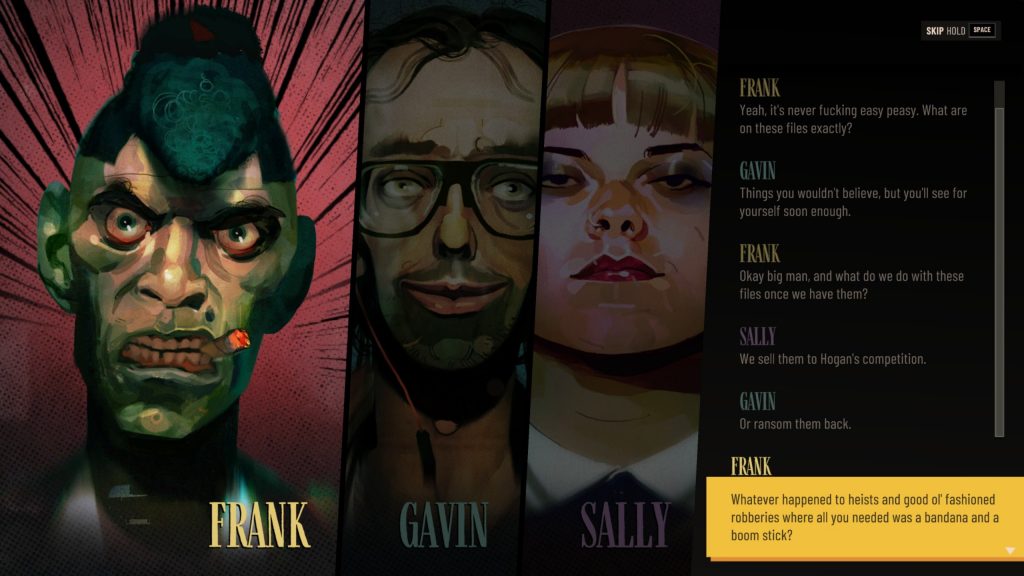
We start playing as Frank (aka ‘The Vengeful Ex-Con’), eventually meeting the rough and tough Sally (aka ‘The Activist’), and geeky and easily spooked Gavin (aka ‘The Disgruntled Ex-Employee’). Initially controlling Frank outside the pub, we are given a standard yet well designed and artistic user interface, with objects we can interact with highlighted by the mouse. Later on, Frank can unlock a skill that can be activated to highlight all interactive items in a scene. While we can examine and ‘move’ to any of these objects, there is no walking around. Rather, the game seems to glitch with static, as if we’re watching this through a lens or tv set, then find ourselves standing next to the object. Certain actions we can perform will cost action points, of which we have a limited number of AP per character that can be raised later through levelling up and upgrading within skill trees.
Once you deplete your action points, you must end the turn. In between turns, time passes and in these early scenes you’re quickly back into your next moves. In later scenes your threat to others raises during these end-turns, like with nearby security guards, so you need to ensure you plan your actions well. As you complete tasks and gain experience, your characters will level up and earn skill points to help specialise each character. Frank is skilled at lockpicking and subdueing your team’s composure, Sally is strong and uses focused might to move large objects or bust down doors, and is the team’s main healer (though every character can use drugs and stimulants to heal), and Gavin can hack machines and computers, as well as swing his baseball wildly for an AOE attack. Lockpicking and hacking are no strangers to puzzle games, however the implementation of these skills in Sunday Gold were really well done with quite a bit of challenge.
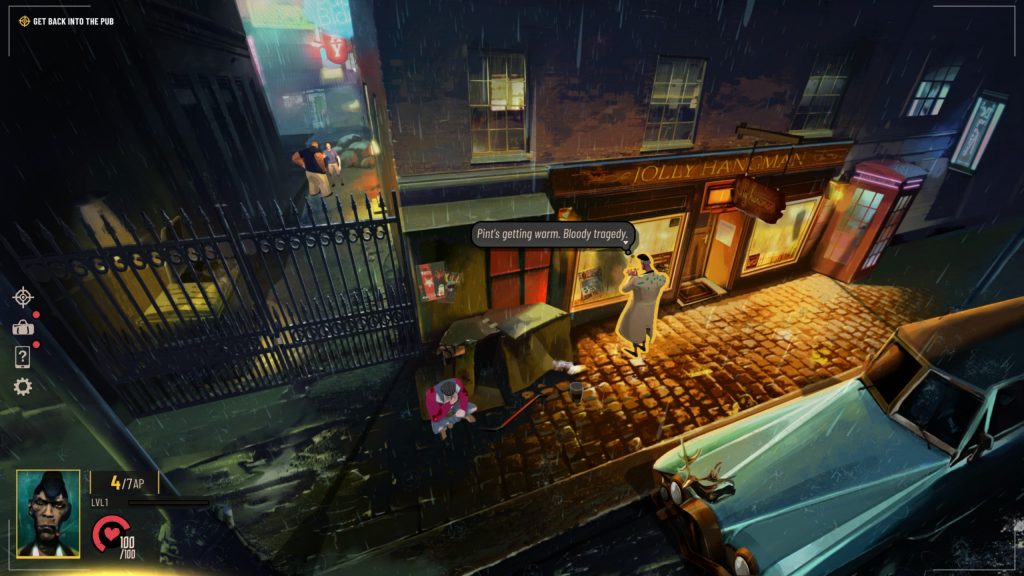
Frank’s lockpicking has four rings you need to pick, and as you move the mouse a small section of the ring will glow which you need to line up with a moving pin. Sally’s focused might has a curved bar that has a moving needle which you need to keep held within a zone, though the needle moves and almost resists where you want it to go. Gavin’s hacking was the minigame I struggled the most with as you need to guess 4-digit codes on easy hacks and 6-digit codes on hard hacks. You start with a wild guess at the combination, and it will let you know if the numbers were the correct ones, and also whether the order/placement is correct, but way of small symbols representing incorrect/correct choices. A circle is correct, a triangle is invalid, and a square is denied. I wasn’t sure how to read the four or six dots – whether to read top to right to bottom or which way, however most of the time I would guess the combinations within the limited attempts. Sometimes the colours of the dots would go purple and it was super confusing for the first hour or so.
Another aspect you need to think about both in and out of combat is the team members’ composure. Gavin is the most easily spooked, and if they lose their composure, random events can happen such as attacking themselves or teammates and suffering debuffs. There are specific skills and items you can loot that will give you boosts to composure, at the cost of action points and their turn in combat. If a character loses their composure in combat, they may completely miss their attacks or be too scared to attack at all and skip their turn. Managing composure becomes quite important as it also effects their ability with the minigames, therefore trying to keep composure high out of combat is the best strategy.
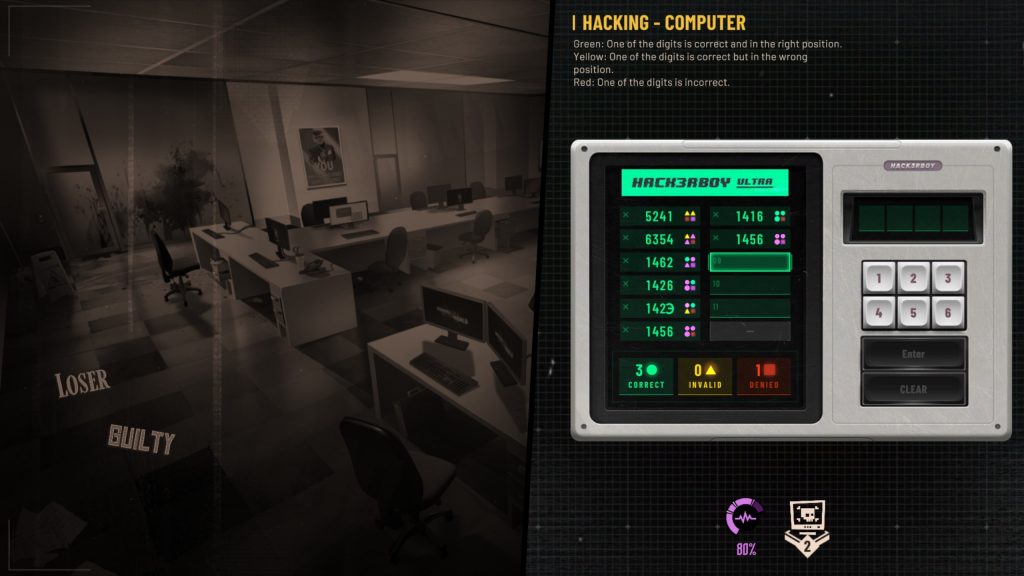
Once in-combat, you have a turn order of characters and enemies at the top, as well as a moment to use skills or attacks with each character in turn. Once you run out of AP, you will need to guard with that character. Frank uses a knife or gun, Gavin has a baseball bat and Sally has knuckle dusters, plus she’s the best healer of the group. Each weapon and the character’s skills can have bonuses against different enemy types to do more damage. You can knock out characters for a couple of turns which buys you time to focus on other enemies or to pop some heals, but I sometimes forgot they can rejoin the fight. Best to take them out when you can.
At the end of each combat encounter, whatever AP is leftover on each character is transferred to the exploration portion of the game. In the later stages of the game, this meant I often needed to end the turn after combat, which raised my threat, and I was straight back into another fight. I died a lot when this happened, so had to save often and replay some fights in order to better conserve AP throughout the fights. This became a little tiresome as time went on, but it’s a tradeoff for having the more engaging turn-based combat within this style of game.
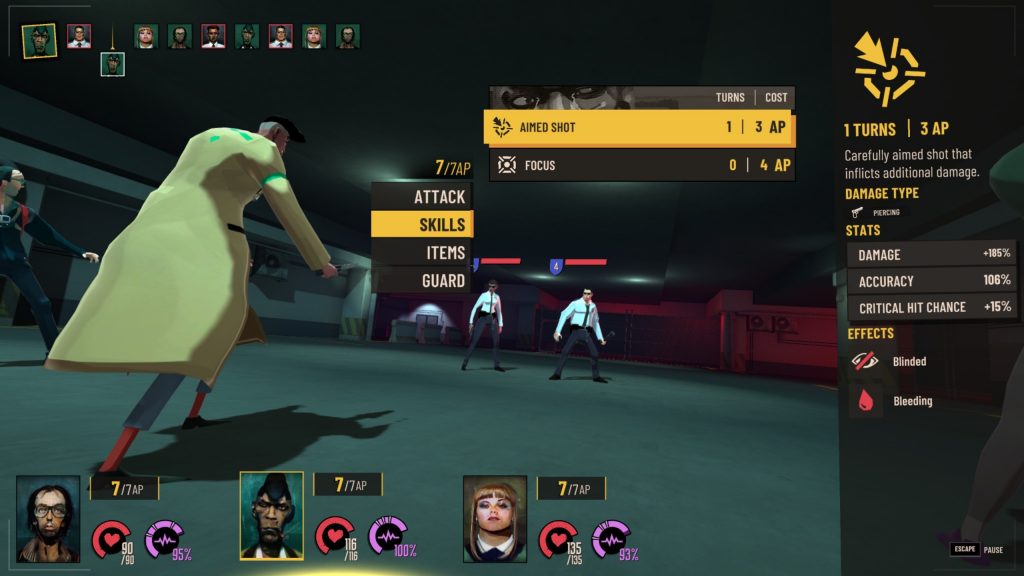
Overall, Sunday Gold is evidence of the fantastic blend between point-and-click exploring and turn-based combat, wrapped within an engaging and humourous story. The voice acting and banter between major characters had me chuckling often and while the ending was predictable, I still enjoyed it which felt like I was playing through a Guy Ritchie movie. The turn-based combat within the overarching point-and-click game may not appeal to everyone, but I thoroughly enjoyed it and highly recommend this game for fans of both genres.
This review utilised a key provided by Team17 and Sunday Gold is available to play now on Steam.
#roundtablecoop
Written by: @ChrisJInglis
